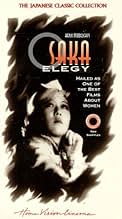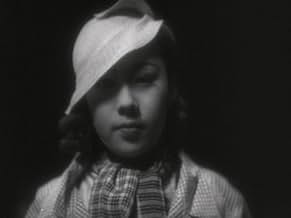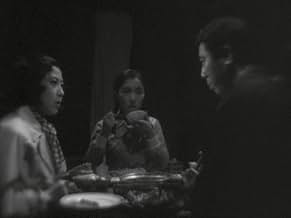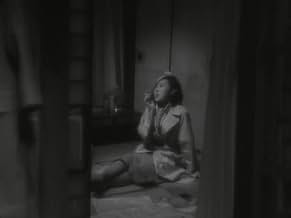IMDb RATING
7.2/10
2.7K
YOUR RATING
A young woman becomes a mistress of her boss in order to support her family.A young woman becomes a mistress of her boss in order to support her family.A young woman becomes a mistress of her boss in order to support her family.
Featured reviews
This is the first collaboration between Mizoguchi and writer Yoshikata Yoda, with the actress Isuzu Yamada in the principal role, as a young telephonist pushed to prostitution to save her ruined family, and then repudiated by them. Mizoguchi begins his impressive mastership with the framing and the perspective and, though still far from his masterpieces, is an interesting milestone for the Mizoguchi admirers.
10Gonzo-23
It was this film alone that drove me into an intense obsession with cinema. Mizoguchi is the great Japanese master, and Osaka Elegy reveals his genius. From his long take compositions that are taxed with complexity and tension, to his ambigious depictions of character, I felt like I had grown after I had seen this film. Notice the national allegory at the film's conclusion, a confused and lonely Japan. And his inconclusive final shot taken many years before the well known 400 Blows. The devastating melodrama is not undercut by any cinematic manipulation. I highly recommend this to any lover of the cinematic medium. Also, I am a sucker for self-reflexive Kabuki theater sequences...
"Osaka Elegy" (Japanese, 1936): Directed by Kenji Mizoguchi. This is one of his earliest films. Japan was in the throes of a cultural turmoil. They were busy invading China, and feeling the schizophrenia of traditional vs modern society. This story is about a decent young woman, who, when familial pressure is applied, does anything necessary to pay the bills of a pathetic father, a self-centered brother, and a confused, naïve sister, and, a keep an abusive boss "happy". As we might expect (now), her road darkens as everyone demands more and more, gives back less and less, and shuns her for doing what they suggested and made their advantage. Expect a noir-ish look to the film, with spare traditional home sets and costuming, contrasted with high style business/commercial sets and costuming.
There are so many interesting things going on in this film, and several of them surprised me. I loved Ayake (played by Isuzu Yamada) and the voices of the women in general. I couldn't help but contrast Ayake's headstrong will and fierceness to Yasujiro Ozu's Noriko in Tokyo Story (played by Setsuko Hara). Noriko was the perfect picture of traditional grace and dedication in a Japanese woman and she fit in perfectly with Ozu's straight lines and symmetrical framing. Ayake, on the other hand, is shadowed by an almost conspiratorial camera which cleverly spies on the fore and background simultaneously, and creeps behind walls and curtains to follow the characters and listen in on their conversations, amplifying the sense of daring and defiance of Ayake's character. The inventiveness of so many varying shots stole my attention more than anything else, though I also appreciated the quick and steady pacing of the story as it unfolded, predominantly led by Ayake.
http://funkyforestfirstcontact.wordpress.com/i-just-saw/
http://funkyforestfirstcontact.wordpress.com/i-just-saw/
I believe the challenge here was to conceive of a film in terms of bunraku - the traditional Japanese puppet theater - and extrapolate from the environment a structure, so one stage where heightened drama unfolds, controlled, with a view of the mechanisms handling the illusion, and then a second stage on the side to supply a rotation of music and voice expressing emotion. This is very well thought out, something to keep in mind when viewing later Mizoguchi where melodrama lacks annotation.
This translates in our film as melodrama about a bold young woman who gambles away on her dignity and reputation because the world around her is desperate for either money or sex, the controlling mechanism is that only the viewer is in possession of all the facts and so is able to read tragic fate in every exchange. This has been noted by some viewers as film noir, because the woman appears to function as a femme fatale, but the Japanese have no affinity for this sort of trope.
So of course, in accordance with bunraku, the woman is a puppeteer but also herself a puppet, a figure on the same stage as the play she enacts, her movements subject to our scrutiny. You will note this in tandem with, and reversing, an earlier Mizoguchi - The Water Magician - about a water artist whose life is merged with the transitory flows she used to control.
This is beautifully rendered in a scene where she is caught with her boss on a night out to watch a bunraku play. She has set a plot in motion, attempting control, an active role, but unpredictable life foils her. The wife demands explanations but seems the most irate for noticing the hairstyle on the girl, signifying a married woman, her role on the stage being supplanted even though it's a loveless marriage and thankless role. Moments before, however, we have seen an excerpt from the play, where inside the artifice, the controlled fiction, it was the suspicious husband accusing the woman of adultery.
This would have an ordinary ironic effect if mapped cleanly to the situation outside the stage, but it doesn't, it's wholly asymmetrical, the tension all in the imbalance of familiar elements framed askew. You have to puzzle about assigning to the players the puppet-master's controls. This is the touch lacking in Ozu's Floating Weeds.
The music is not in the emotional after-effects of storytelling, this too part of the heightened artifice. The music is in the camera, caressing day from night.
This translates in our film as melodrama about a bold young woman who gambles away on her dignity and reputation because the world around her is desperate for either money or sex, the controlling mechanism is that only the viewer is in possession of all the facts and so is able to read tragic fate in every exchange. This has been noted by some viewers as film noir, because the woman appears to function as a femme fatale, but the Japanese have no affinity for this sort of trope.
So of course, in accordance with bunraku, the woman is a puppeteer but also herself a puppet, a figure on the same stage as the play she enacts, her movements subject to our scrutiny. You will note this in tandem with, and reversing, an earlier Mizoguchi - The Water Magician - about a water artist whose life is merged with the transitory flows she used to control.
This is beautifully rendered in a scene where she is caught with her boss on a night out to watch a bunraku play. She has set a plot in motion, attempting control, an active role, but unpredictable life foils her. The wife demands explanations but seems the most irate for noticing the hairstyle on the girl, signifying a married woman, her role on the stage being supplanted even though it's a loveless marriage and thankless role. Moments before, however, we have seen an excerpt from the play, where inside the artifice, the controlled fiction, it was the suspicious husband accusing the woman of adultery.
This would have an ordinary ironic effect if mapped cleanly to the situation outside the stage, but it doesn't, it's wholly asymmetrical, the tension all in the imbalance of familiar elements framed askew. You have to puzzle about assigning to the players the puppet-master's controls. This is the touch lacking in Ozu's Floating Weeds.
The music is not in the emotional after-effects of storytelling, this too part of the heightened artifice. The music is in the camera, caressing day from night.
Did you know
- Quotes
Junzo Murai: You're a woman... Being taken to the police station... Getting thrown into jail... You've done shameful things. You ungrateful child!
Ayako Murai: How could you say that? I never expected that I'd be treated like this when I came home. This is ridiculous! I thought you would welcome me with open arms. If I'd have known this, I never would have come back.
- ConnectionsFeatured in Century of Cinema: Nihon eiga no hyaku nen (1995)
- How long is Osaka Elegy?Powered by Alexa
Details
- Release date
- Country of origin
- Language
- Also known as
- Naniwa Elegy
- Production company
- See more company credits at IMDbPro
- Runtime
- 1h 30m(90 min)
- Color
- Sound mix
- Aspect ratio
- 1.37 : 1
Contribute to this page
Suggest an edit or add missing content

























